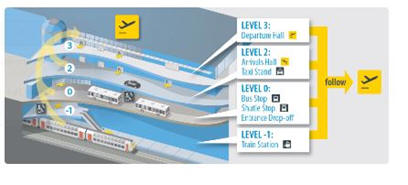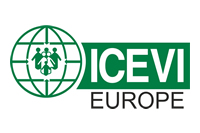ICEVI-Europe Professional
Interest Group, Early Intervention Conference
Dear Participants of the Early Intervention Conference,
As a result of the special circumstances and measures taken in Europe in the context of COVID-19, it was decided that the ICEVI-Europe Professional Interest Group, Early Intervention Conference scheduled to be held on 23 & 24 April 2020 in Leuven, Belgium will not take place.
We are looking into the possibility to postpone the ICEVI-Europe Professional Interest Group Early Intervention Conference to a later date, probably in the fall of 2020. As soon as we have more insight into a possible new date, this will be communicated.
We would like to thank you for your understanding of the measures taken in light of these exceptional circumstances.
Sincerely,
Hans Welling, President of ICEVI-Europe
Kathleen Vandermaelen, Board Member of ICEVI-Europe
Sonia Meys, Conference Chairperson

ICEVI-Europe Professional interest group, Early Intervention Conference:
The development of social and emotional skills in young children with
visual impairments
Dear colleagues,
It is with great pleasure and enthusiasm that we invite you to attend the
ICEVI-Europe Professional Interest Group Early Intervention Conference on the
development of social and emotional skills in young children with visual
impairments.
It is a great opportunity to share your knowledge and expertise, present your
research, and exchange best practices regarding the development of the child
with visual impairments and the role of his parents and wider social network.
We look forward to welcoming you at the conference in the beautiful city of
Leuven and we wish you a pleasant time!
Hans Welling, President of ICEVI-Europe
Kathleen Vandermaelen, Board Member of ICEVI-Europe
Sonia Meys, Conference Chairperson
CONTENT
Title and Theme of the Conference
The upcoming ICEVI-Europe Professional Interest Group Early Intervention
Conference will be held in Leuven, Belgium on the 23th and 24th of April
2020.
The title and General theme of the conference will be:
The development of social and emotional skills in young children
with visual impairments
From birth of onwards a meaningful and valuable relationship develops
between parents and their baby.
This attachment relationship is a growth process, in which the bond
between parents and child ideally keeps on growing stronger. Both parents and
child get to know each other better. They learn to understand each
other and learn to adjust their behaviour to each other’s need. For the child,
the attachment relationship with his parents forms the foundation for all his
social interactions later in life.
Step-by-step parents guide their child to a life in the wider community,
outside of the family. Over development into (young) adulthood, the number of
relationships children develop and maintain with meaningful others gradually
expands. Well-developed social and emotional skills may help children to manage
this challenging task.
But what if a baby or child cannot see or at least not see enough?
What is the impact of vision on this important aspect in the development
of a child?
What role can the wider social network of the child and its family play
in the child’s social and emotional development? And how can the professional
network provide the appropriate support to these families?
Keynote speeches
Social and emotional well-being of young children with a visual impairment
and their family system.
Many visual impaired and blind children are at risk in their social and
emotional development. The visual impairment has a major influence on this
process. In order to develop good social and emotional skills, extra efforts are
required from the child, the parents and the broader family system. Many things
require a slightly different approach or have to be compensated in a creative
way, which puts pressure on their coping abilities.
- What additional challenges do families experience within the
social and emotional development of their child with a visual
impairment?
- What effect do these challenges have on the coping abilities
of the family system and their wider social network?
- How can we guide these processes as professionals so that
the family system feels supported in this?
Marlies Praet (De Kade- Spermalie) and Griet
Pattyn (De Kade-Spermalie)
Sensory perceptual issues as an explanatory model for special behavior and
stress in young children with visual impairment or blindness.
If the sensory perception of a young child with VIB is special, then also the
meaning and experience of the world around him and possible his behaviour.
A better understanding of the special perception of young children with VIB
can help us to:
- Gain a better understanding of how a young child with VIB
experiences the world.
- Gain an insight into the vulnerability of very young
children with VIB and therefore offer appropriate protection and
guidance.
- Understand the (special) behavior, we must also have an eye
for the "beautiful" side of the special perception that can
express itself in a passion for certain stimuli or in the search
for own compensatory strategies.
When children with VIB feel better understood and supported, their (self)
confidence in the world around them will grow, this will positively influence
their social-emotional development.
Katrien Strauven (Centrum Ganspoel) and Joke Luyten
(Centrum Ganspoel)
The attachment relationship between parent and child.
Children with a visual impairment experience lower psychological well-being than normative populations. In this presentation the importance of the attachment relationship between parent and child will be highlighted as an important aspect contributing to psychological well-being of children in general and specifically to the psychological well-being of children with a visual impairment.
First, an overview of common topics included in psychological well-being research from 2000 to 2018 among children with a visual impairment will be provided. The themes that need to be attended to in future will be addressed.
Second, specific interventions focussing on contributing to the attachment relationship between the parent and young child will be presented. Examples will be given of interventions in which technology is used to contribute to the development of an attachment relationship.
Prof. dr. P.S. Sterkenburg
(Bartiméus & Vrije Universiteit Amsterdam)
Target Group
Professionals working with young children (0 to 6 years) in a residential
setting, home counselling and education.
Dates
- 22 April 2020 Arrival and Informal get together
- 23-24 April 2020 Conference days
- Departure on April 24 or 25 2020
Venue
The conference will take place at the conference rooms of the Youth
hostel ‘De Blauwput’ Martelarenlaan 11a B-3010
Leuven.
http://www.leuven-hostel.com/index_en.html

‘De Bauwput’ is situated at only 50m of the Leuven railway and bus station.
Take the train or the bus to Leuven; inside the pedestrian tunnel under the
railway station you follow the signs "Kessel-Lo". Leave the tunnel and walk
under the bridge.
WARNING: when in the French-speaking part of Belgium, do not order a ticket
to "Louvain" because you might end up in Louvain-La-Neuve, our French-speaking
sister city about 30 kilometers south of Leuven.
Hotel accommodation
Participants are responsible for booking a desired accommodation by
themselves. Several accommodation options are available within walking distance
from the venue:
- Youth hostel ‘De Blauwput’
‘De Blauwput’ offers spacious rooms for 2, 4 and 6 persons
Website:
http://www.leuven-hostel.com/index_en.html
Ravenstraat 37,B-3000 Leuven
Website:
https://www.hostelworld.com/hosteldetails.php/Hotel-Ladeuze/Leuven/272790
- ibis budget Leuven Centrum
Martelarenlaan 10, 3010 LEUVEN
Website:
https://all.accor.com/hotel/6682/index.nl.shtml#origin=ibis
Martelarenplein 7, 3000 Leuven
Website:
https://www.hotel-industrie.be/en/
Vuurkruisenlaan 4, 3000 LEUVEN
Website:
https://all.accor.com/hotel/3153/index.en.shtml
Abstracts
The conference is composed of oral presentations, workshops and posters.
Submission of abstract of paper or poster:
When you want to give a presentation, you have to submit an abstract. The
required word limit for the abstract is 250 words, written in the English
language. You can download and complete your Official Abstract Form:official
abstract form professional interest group early intervention
Please submit your completed Official Abstract Form before 1 March
2020 to
kathleen.vandermaele@ganspoel.be
Please note that to be included in the conference program, presenting
authors must be registered participants, who have paid the conference
registration fee.
Paper Presentation:
Your accepted paper will be presented and discussed in time slots of 30
minutes.
All papers will be included in the conference proceedings.
Registration
To register as a conference participant, you have to submit a completed
registration form and transfer the payment for your conference registration fee.
You can download and complete your Participant’s Registration Form:
registration form professional interest group early intervention Leuven
Please submit your completed Registration Form before April 1, 2020
via email to
kathleen.vandermaele@ganspoel.be
Please be informed that in order for you to be considered a
registered conference participant we need to have received your
completed Registration Form and Conference Registration Fee Payment
before April 1, 2020.
Conference Registration Fee
The conference fee includes: proceedings, lunch and coffee breaks on the
conference days.
ICEVI-Europe
Members: 120 euro
Non-members:
135 euro
Bank Details in Huizen, The Netherlands, for Payment of Conference
Registration Fee:
Payments in Euro to Account Holder: ICEVI-Europe
ING, Account Number: 4890207
BIC: INGBNL2A
IBAN: NL90 INGB 0004 8902 07
*NOTE: When transferring the payment for your
conference registration fee, please make certain to indicate your name as the
conference participant, as well as, the below conference reference code.
If you are making the conference registration fee payment on behalf of someone
else, please make certain to indicate the name of the individual who will be
attending as the conference participant, as well as, the below conference
reference code.
REFERENCE: P.I.G Early Intervention Conference
** All transfer fees must be paid by sender. Please be advised
that there will be no refunds for cancellations or non-attendance.
Proceedings
Digital proceedings will be provided.
Transportation Information
-
Arriving by plane to Brussels Airport
With the train, you can travel from Brussels Airport directly to Leuven.
The train station is located directly under the departures and arrivals halls,
at level -1. The platform is easily reached by lift or escalator.

WARNING: do not order a ticket to "Louvain" because you might end up in
Louvain-La-Neuve, the French-speaking sister city about 30 kilometers south of
Leuven.
All international trains,
Thalys, Eurostar, TGV®
and ICE arrive at
Bruxelles-Midi/Zuid. From this station there are several direct trains per hour
to Leuven.
WARNING: do not order a ticket to "Louvain" because you might end up in
Louvain-La-Neuve, the French-speaking sister city of Leuven about 30 kilometres
south of Leuven.
Future of the Professional Interest Group, Early intervention
For further information and registration, see the website of ICEVI-Europe






